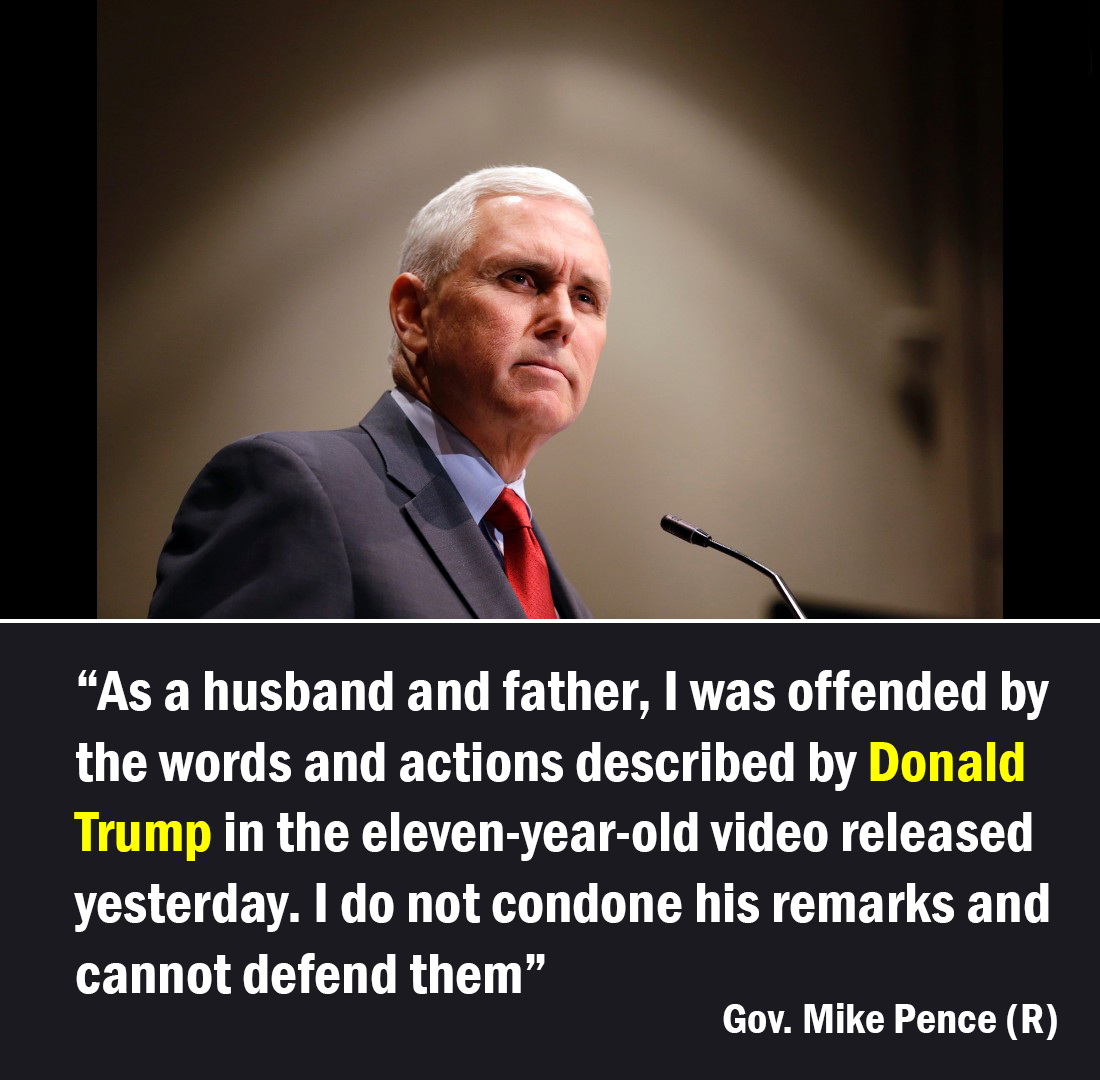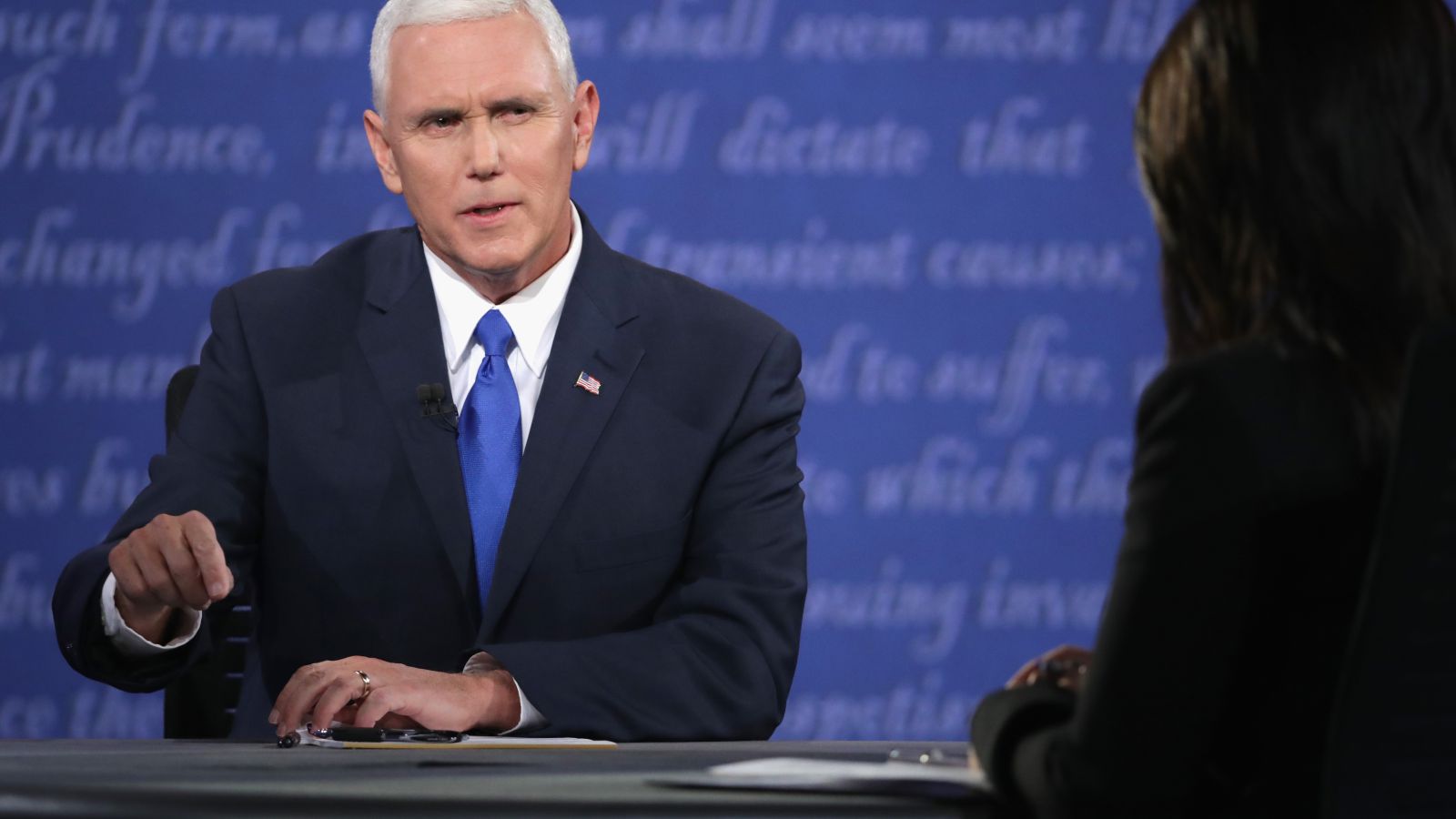On Saturday, Indiana Gov. Mike Pence (R) spoke a truth that’s been an undercurrent pretty much since the moment he became Trump’s running mate: “I do not condone his remarks and cannot defend them.”
Pence was talking specifically about the lewd, crude and just plain hard-to-listen-to comments Trump made about groping and having sex with women in 2005 that The Washington Post’s David Fahrenthold published Friday.
But Pence may as well have been talking about this entire 2016 election. From the moment Pence accepted Trump’s vice-presidential nomination this June, he’s been in a sometimes-awkward, often-difficult, ultimately no-win situation: How does someone like Pence, a traditional social conservative with deep establishment roots, defend and champion the most untraditional and controversial major-party presidential nominee in modern history?
After watching Pence campaign these past few months, the answer seems to be a reality he acknowledged in part Saturday: He can’t.
Literally the day after both candidates made their nominations official at the Republican National Convention in July, Pence’s trouble started.
In a news conference, Trump, instead of building off the goodwill from the convention, brought up old grudges about his rival, Sen. Ted Cruz (R-Tex.), and rambled on about how popular his convention was.
It was the first time Pence had stood on stage as Trump campaigned. Here’s his reaction to Trump bragging about how the final night of the convention was so popular that tickets for it “were selling for a lot of money on eBay. There were going for big numbers:”

This is going to be a long 3 1/2 months for Pence, I wrote at the time. And it has been.
For the rest of the summer, Pence tried to fly under the radar. He would campaign in the Rust Belt, and talk about Trump’s relatively traditional economic plan, and try to assuage the nerves of congressional Republicans that Trump was doing what he needed to to win. But Pence’s disagreements with Trump were never far from the surface.
When Trump wavered on whether to endorse Sen. John McCain (R-Ariz.) and House Speaker Paul D. Ryan (R-Wis.) in their primaries, Pence issued a statement making clear he supports both.
As Trump took heat for not releasing his tax returns, Pence released a decade’s worth of his.
When Trump floated the idea of not supporting NATO allies, Pence clarified that what Trump really meant to say was the United States will stand by its allies: “America keeps its word, and you can tell Donald Trump keeps his word.”
When Trump banned media organizations, including The Post, Pence apparently tried to talk him out of it: “We’re going to have those conversations internally, and I fully expect in the next 100 days we’re going to continue to be available to the media,” he said.
Things only got worse for Pence as the campaign dragged on. Just four days ago, Pence sat down for a vice-presidential debate with Sen. Tim Kaine (D), and instead of defending Trump, he decided to defend a Trump that doesn’t exist. On Russia, Syria, abortion, Mexican immigrants, even the role of insults in the presidential campaign, Pence repeatedly contradicted his nominee and at times even falsely said Trump supports things he doesn’t.
Pence’s struggles to stand by Trump have been closely observed and well documented — by us, the media. But never has Pence actually acknowledged how hard his job is. Until now.
It’s going to be a long 30 days for Pence.

